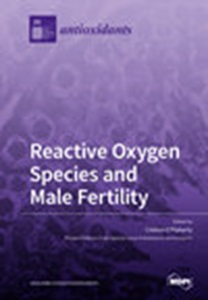神经退行性疾病中的氧化还原稳态、肠道微生物群和表观遗传学:系统综述
IF 6
2区 医学
Q1 BIOCHEMISTRY & MOLECULAR BIOLOGY
引用次数: 0
摘要
神经退行性疾病包括一系列以神经系统结构和功能逐渐退化为特征的疾病。这些疾病包括帕金森病(PD)、阿尔茨海默病(AD)、亨廷顿病(HD)、肌萎缩侧索硬化症(ALS)和多发性硬化症(MS),通常会导致严重的认知和运动障碍。神经退行性疾病病理的一个重要组成部分是促氧化机制和抗氧化机制之间的失衡,最终导致氧化应激。大脑的高耗氧量和富含脂质的环境使其特别容易受到氧化损伤。在正常新陈代谢过程中会不断产生活性氧(ROS)和活性氮(RNS)等原氧化剂,并通过酶和非酶抗氧化防御系统加以抵消。在神经退行性疾病中,这种平衡被打破,导致神经元损伤。这篇系统性综述探讨了氧化应激、肠道微生物群和表观遗传修饰在神经退行性疾病中的作用,旨在阐明这些因素之间的相互作用,并确定潜在的治疗策略。我们在主要数据库中对 2024 年发表的文章进行了全面检索,重点研究神经退行性疾病中氧化还原稳态、肠道微生物群和表观遗传变化之间的关系。共纳入 161 项研究,包括临床试验、观察性研究和实验研究。我们的研究结果表明,氧化应激在神经退行性疾病的发病机制中起着核心作用,而肠道微生物群的组成和表观遗传学改变对氧化还原平衡有显著影响。特定的细菌类群和表观遗传标记被确定为氧化应激的潜在调节因子,为治疗干预提供了新途径。此外,最近来自人类和动物研究的证据支持了通过微生物群和表观遗传疗法达到氧化还原平衡的新兴概念。未来的研究应侧重于在临床环境中验证这些靶点,并探索基于个体微生物群和表观遗传特征的个性化医疗策略的潜力。本文章由计算机程序翻译,如有差异,请以英文原文为准。
Redox Homeostasis, Gut Microbiota, and Epigenetics in Neurodegenerative Diseases: A Systematic Review
Neurodegenerative diseases encompass a spectrum of disorders marked by the progressive degeneration of the structure and function of the nervous system. These conditions, including Parkinson’s disease (PD), Alzheimer’s disease (AD), Huntington’s disease (HD), Amyotrophic lateral sclerosis (ALS), and Multiple sclerosis (MS), often lead to severe cognitive and motor deficits. A critical component of neurodegenerative disease pathologies is the imbalance between pro-oxidant and antioxidant mechanisms, culminating in oxidative stress. The brain’s high oxygen consumption and lipid-rich environment make it particularly vulnerable to oxidative damage. Pro-oxidants such as reactive nitrogen species (RNS) and reactive oxygen species (ROS) are continuously generated during normal metabolism, counteracted by enzymatic and non-enzymatic antioxidant defenses. In neurodegenerative diseases, this balance is disrupted, leading to neuronal damage. This systematic review explores the roles of oxidative stress, gut microbiota, and epigenetic modifications in neurodegenerative diseases, aiming to elucidate the interplay between these factors and identify potential therapeutic strategies. We conducted a comprehensive search of articles published in 2024 across major databases, focusing on studies examining the relationships between redox homeostasis, gut microbiota, and epigenetic changes in neurodegeneration. A total of 161 studies were included, comprising clinical trials, observational studies, and experimental research. Our findings reveal that oxidative stress plays a central role in the pathogenesis of neurodegenerative diseases, with gut microbiota composition and epigenetic modifications significantly influencing redox balance. Specific bacterial taxa and epigenetic markers were identified as potential modulators of oxidative stress, suggesting novel avenues for therapeutic intervention. Moreover, recent evidence from human and animal studies supports the emerging concept of targeting redox homeostasis through microbiota and epigenetic therapies. Future research should focus on validating these targets in clinical settings and exploring the potential for personalized medicine strategies based on individual microbiota and epigenetic profiles.
求助全文
通过发布文献求助,成功后即可免费获取论文全文。
去求助
来源期刊

Antioxidants
Biochemistry, Genetics and Molecular Biology-Physiology
CiteScore
10.60
自引率
11.40%
发文量
2123
审稿时长
16.3 days
期刊介绍:
Antioxidants (ISSN 2076-3921), provides an advanced forum for studies related to the science and technology of antioxidants. It publishes research papers, reviews and communications. Our aim is to encourage scientists to publish their experimental and theoretical results in as much detail as possible. There is no restriction on the length of the papers. The full experimental details must be provided so that the results can be reproduced. Electronic files and software regarding the full details of the calculation or experimental procedure, if unable to be published in a normal way, can be deposited as supplementary electronic material.
 求助内容:
求助内容: 应助结果提醒方式:
应助结果提醒方式:


